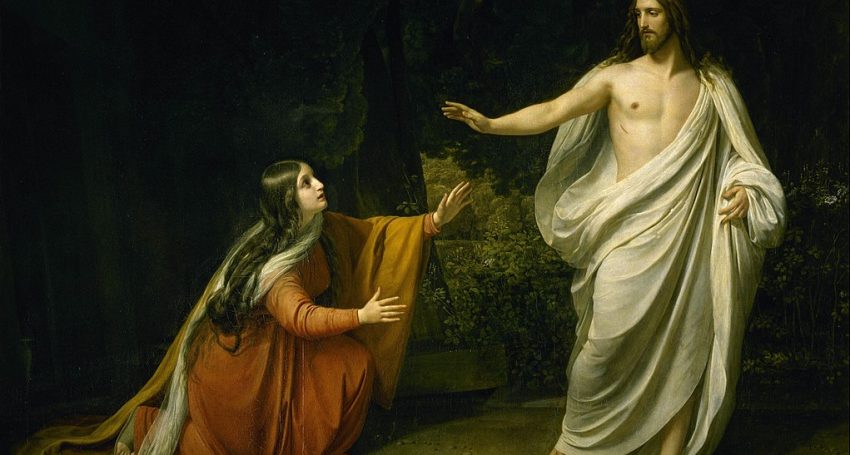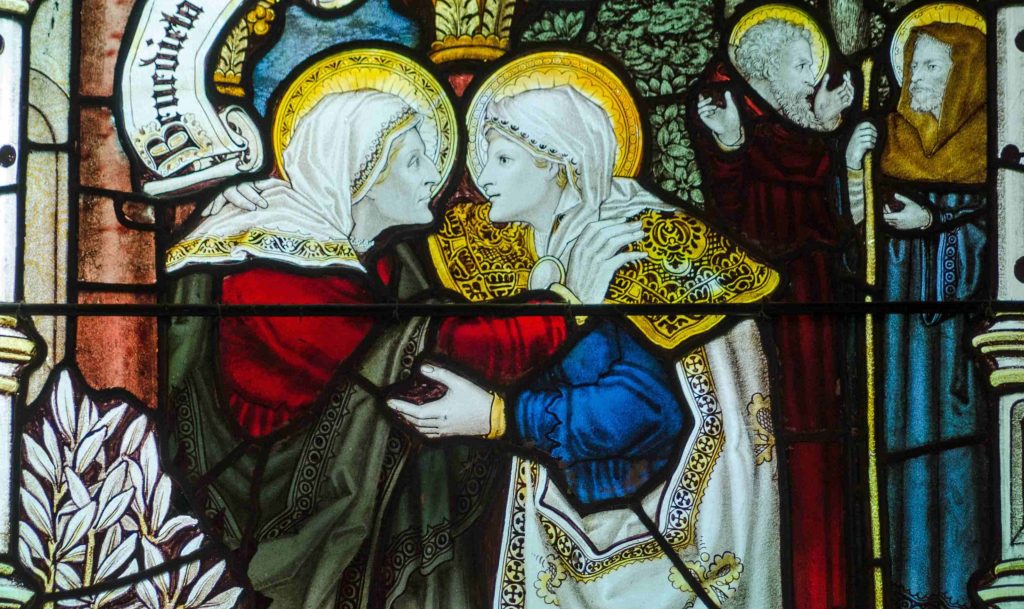Meeting the Gospel women
Features
“The women, at the most pivotal point in the story of Christian origins, are the faithful witnesses of these climactic events. In the way the Gospel authors frame the narrative, Christianity depends upon the testimony of these faithful women. The Church only exists because of their faithful witness and testimony,” says Dr Maurice Ryan

The women who followed Jesus are not prominent in the Gospel accounts of Jesus’ ministry, but they are nonetheless pivotal in the story of Christian origins. Few of Jesus’ women followers are named in the Gospels: five are named Mary. In the Gospels, Jesus has conversations with women who are not followers, but the Gospel authors report few conversations between Jesus and his female followers. Still, this should not distract Gospel readers from awareness of women in the life and times of Jesus.
Advertisement
The Gospel women have full access to their own finances: the haemorrhaging woman spends “all she had” on physicians (Luke 8.43); Mary Magdalene, Joanna and Susanna “and many others provided for them out of their resources” (Luke 8.3); the unnamed woman anoints Jesus with “very costly ointment” (Mark 14.3); and, the women “bought spices” to anoint Jesus’ body (Mark 16.1). They own houses (“Martha welcomed him into her home”, Luke 10.38) and provide hospitality to Jesus where they live, rather than as members of his travelling entourage. They participate in synagogue and temple activities, including Anna, the prophet “who never left the Temple” (Luke 2.36-7); the “crippled woman” in the synagogue (Luke 13.10-11); and, the “poor widow” in the temple (Luke 21.1-4). They are free to travel in Jesus’ entourage independent of male family chaperones, such as the women of Galilee (Luke 8.1-3) and the women at the cross (Matthew 27.55-6).

Stained-glass window of Mary and Martha (Image: Canva)
The Gospel women are free to express their ideas to male strangers. Among these are the Samaritan woman at Jacob’s well (John 4.1-26); the Syrophoenician/Canaanite woman (Mark 7.24-30); and, the woman who guarded the gate to the high priest’s courtyard who confronts Peter (John 18.15-18). They express their views in public without restraint or fear of recrimination, including the woman in the crowd (Luke 11.27) and the daughters of Jerusalem who wail for Jesus (Luke 23.27-8). Women touch Jesus, and Jesus touches them, such as the woman who washes, kisses and anoints his feet (Luke 7.36-50); the haemorrhaging woman (Luke 8.44); Simon’s mother-in-law whom Jesus lifted up (Mark 1.31); Jairus’ daughter whose hand he touched (Mark 5.41); and, a “crippled woman”, whom Jesus laid his hands upon to heal (Luke 13.13). A woman who touches Jesus – even a woman with a constant flow of blood – does not render Jesus, or anyone else, ritually impure since there is nothing in the Jewish Torah to prevent her doing so.
Advertisement
Critically, the women who followed Jesus are presented by the Gospel authors as the continuous witnesses to the life, death and resurrection of Jesus of Nazareth. The women who have followed Jesus from Galilee to Jerusalem – “looking on from a distance” – observe Jesus on the cross (Matthew 27.55).
They watch as Jesus is buried in the tomb (Matthew 27.61). They are the first to “see the place where he lay”, now empty (Matthew 28.6). They are the first to experience an encounter with the risen Jesus (Matthew 28.9).
The women, at the most pivotal point in the story of Christian origins, are the faithful witnesses of these climactic events. In the way the Gospel authors frame the narrative, Christianity depends upon the testimony of these faithful women. The Church only exists because of their faithful witness and testimony.
Editor’s note: The Anglican Schools Commission is hosting a series of twilight “Supper and Soul Sessions”, which include a seminar and supper, facilitated by Dr Maurice Ryan and designed to support teachers in Anglican schools. The next event is on Wednesday 26 April 2023 between 4 pm and 6 pm at St Francis College in Milton (with a Zoom option) and the topic will be “Jesus of Nazareth”. For more information, please contact Director of Anglican Identity Vanessa Gamack via vgamack@anglicanchurchsq.org.au





